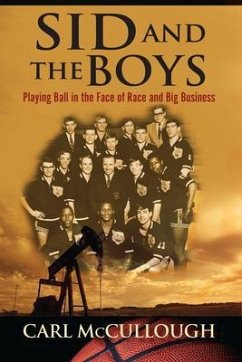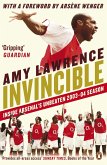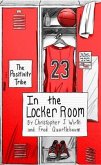This is a story about a small town, big oil, an undersized high school basketball team, a coach with a huge heart, and how a season was nearly undone by well-intentioned corporate interference and racism.
Big oil and basketball both grew up in Bartlesville, Oklahoma in the first half of the twentieth century. The eleven-time national AAU champion Phillips 66er and their corporate sponsor gained international fame together in the 1940s and 50s. Due in large part to Phillips Petroleum Company, Bartlesville had a highly educated and affluent population. Thanks also to Phillips, there was a stockpile of All-American basketball stars who lived there and served as coaches and mentors to youth throughout the community.
In the late fall of 1966, just as the high school basketball season was getting underway, one of those former players was dispatched by Phillips to "assist" the local team, only to learn that the help was unwelcome. What Phillips failed to understand was the loyalty between the coach and his team. In an exceptional and unexpected show of unity, as well as fierce loyalty, the players rallied around their coach and commenced their season, playing against the state's largest schools.
This is a heartwarming story of that coach, his team and the lasting impact of their remarkable relationship.
This story reminds me of 'Hoosiers.' It combines high school basketball with timely social issues. Well researched and a great read. --Jay Bilas, ESPN
Debut author Carl McCullough has captured not only a great sports story, but provides food for thought on current issues. His treatment of racism is sensitive and timely. --Former Oklahoma Sooners and Dallas Cowboys Head Coach, Barry Switzer
This is a classic story of an undersized high school basketball team from a big oil town in Northeast Oklahoma that finds a way to make a run at a state championship while fighting systemic racism at the height of the civil rights movement and attempts by corporate business to control who coaches and plays on the team. A sociologist's dream that turns into a fairy tale finish. --Dick Weiss, Hall of Fame Sports Columnist.
Big oil and basketball both grew up in Bartlesville, Oklahoma in the first half of the twentieth century. The eleven-time national AAU champion Phillips 66er and their corporate sponsor gained international fame together in the 1940s and 50s. Due in large part to Phillips Petroleum Company, Bartlesville had a highly educated and affluent population. Thanks also to Phillips, there was a stockpile of All-American basketball stars who lived there and served as coaches and mentors to youth throughout the community.
In the late fall of 1966, just as the high school basketball season was getting underway, one of those former players was dispatched by Phillips to "assist" the local team, only to learn that the help was unwelcome. What Phillips failed to understand was the loyalty between the coach and his team. In an exceptional and unexpected show of unity, as well as fierce loyalty, the players rallied around their coach and commenced their season, playing against the state's largest schools.
This is a heartwarming story of that coach, his team and the lasting impact of their remarkable relationship.
This story reminds me of 'Hoosiers.' It combines high school basketball with timely social issues. Well researched and a great read. --Jay Bilas, ESPN
Debut author Carl McCullough has captured not only a great sports story, but provides food for thought on current issues. His treatment of racism is sensitive and timely. --Former Oklahoma Sooners and Dallas Cowboys Head Coach, Barry Switzer
This is a classic story of an undersized high school basketball team from a big oil town in Northeast Oklahoma that finds a way to make a run at a state championship while fighting systemic racism at the height of the civil rights movement and attempts by corporate business to control who coaches and plays on the team. A sociologist's dream that turns into a fairy tale finish. --Dick Weiss, Hall of Fame Sports Columnist.
Dieser Download kann aus rechtlichen Gründen nur mit Rechnungsadresse in A, D ausgeliefert werden.









